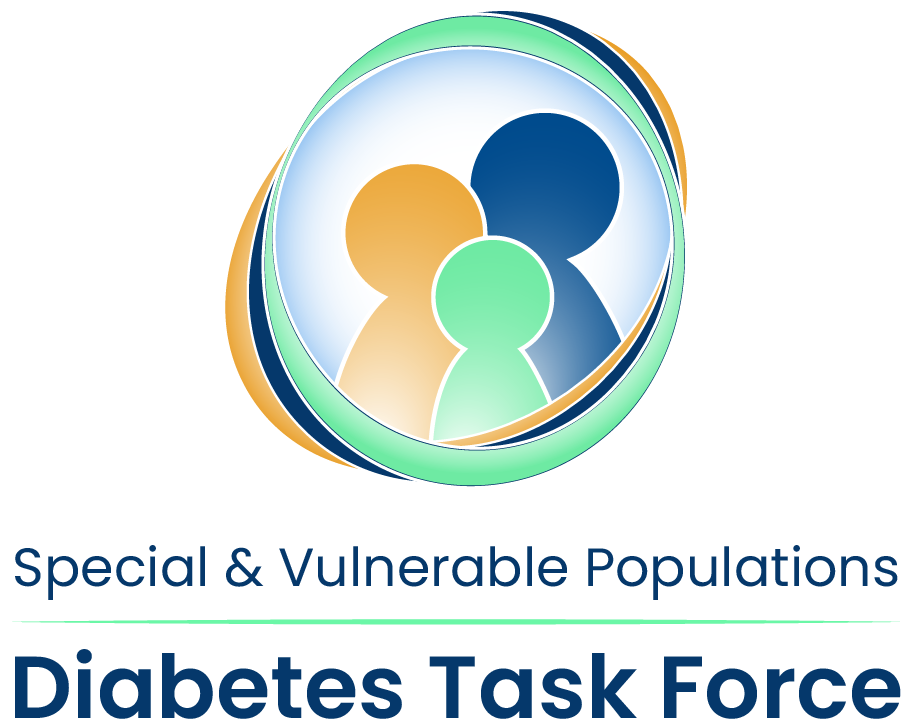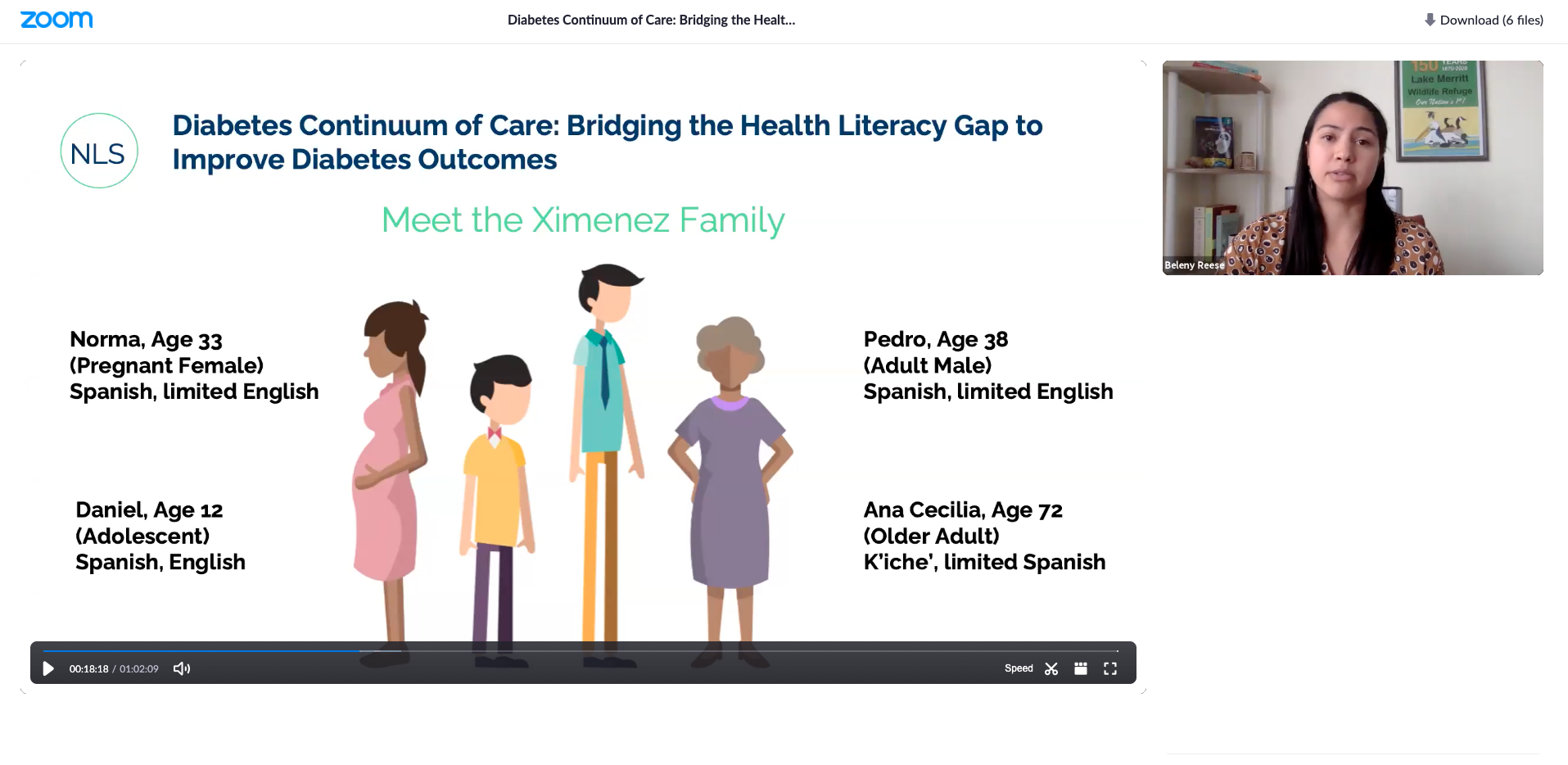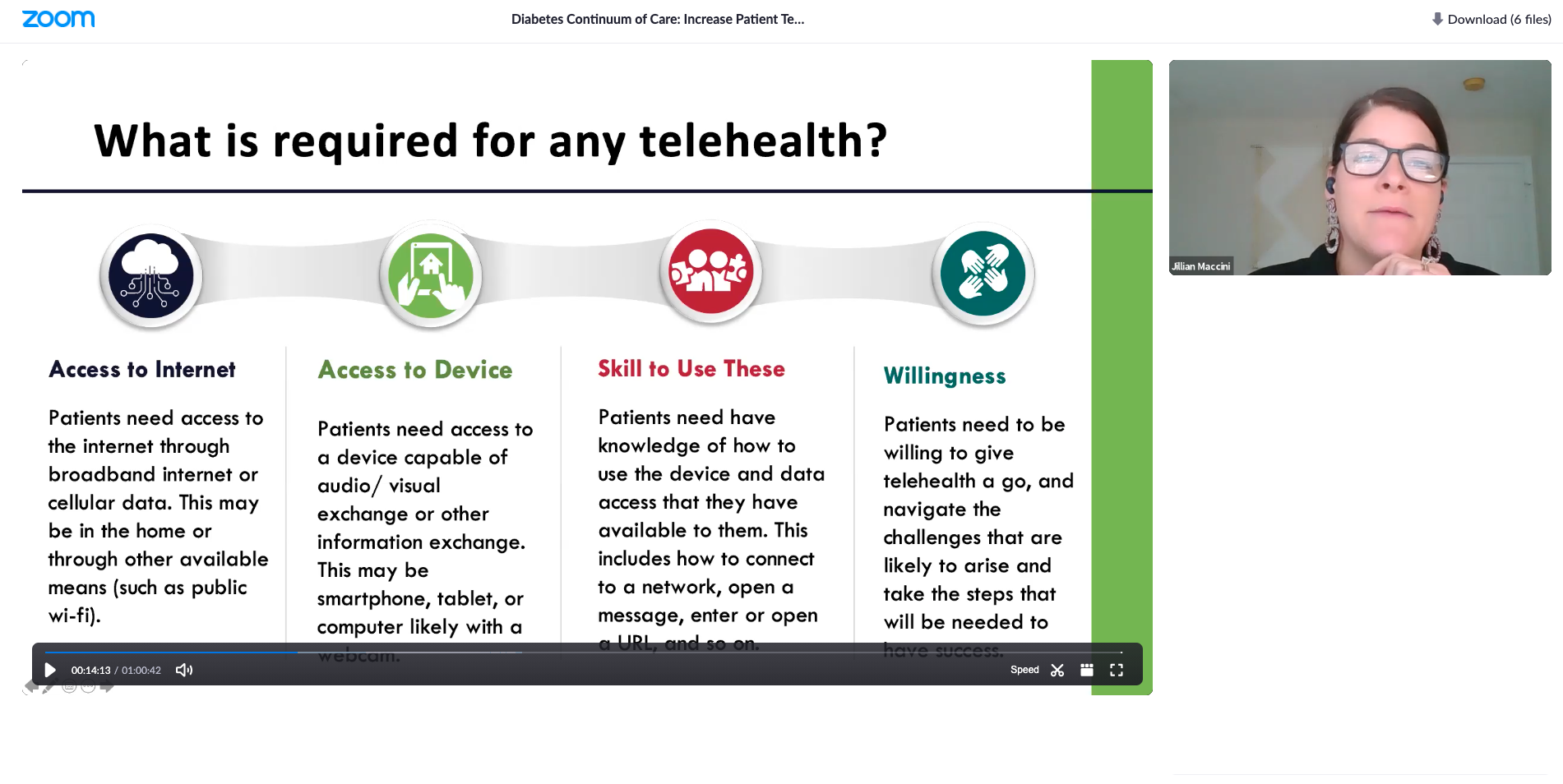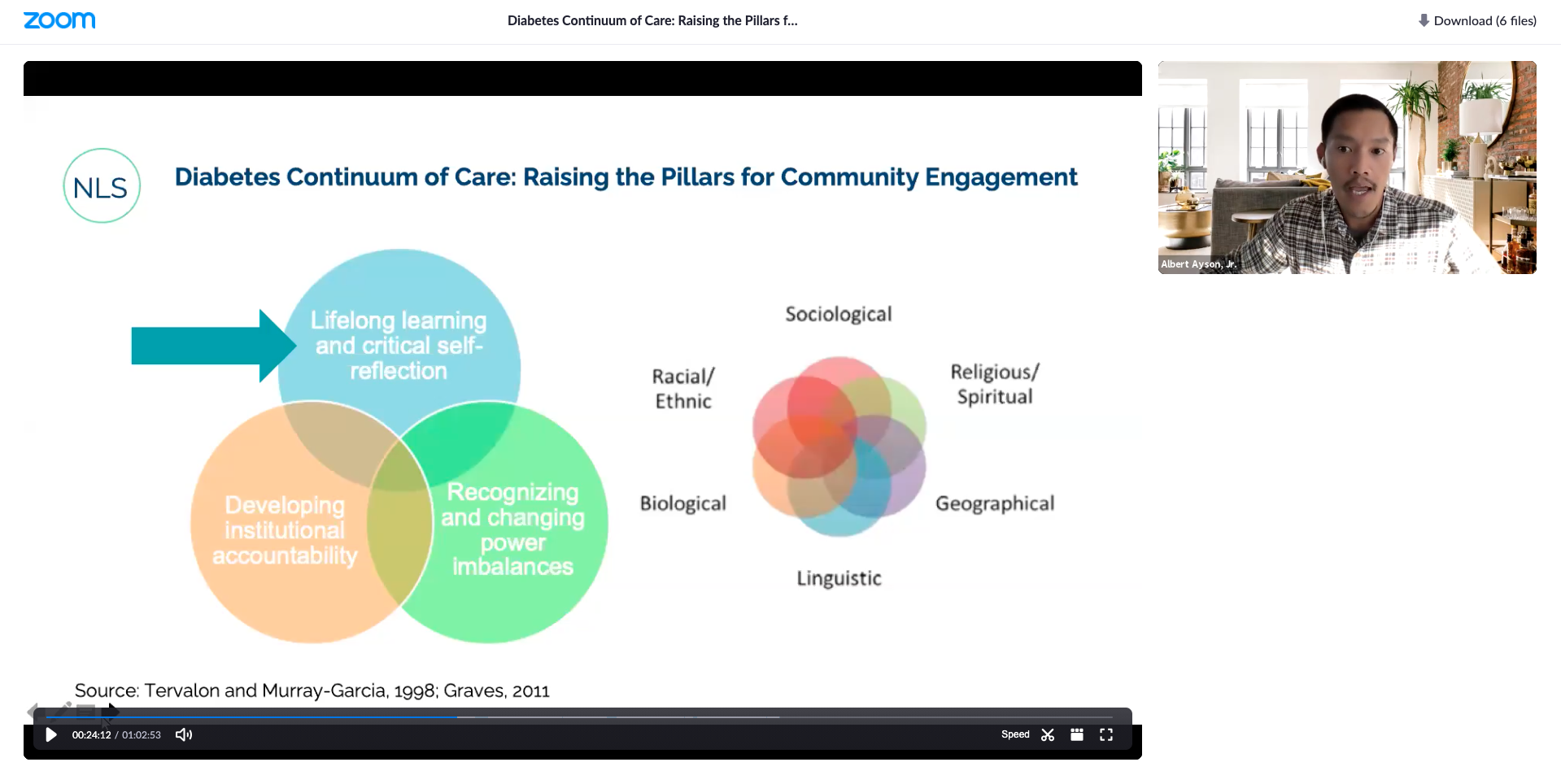Diabetes in Special and Vulnerable Populations:
A National Learning Series
October - November 2020
Background
Diabetes affects more than 34 million people in the United States. Multi-tiered efforts to prevent, treat and manage diabetes are critical in reducing the burden of diabetes, particularly for special and vulnerable populations, which have unique characteristics that affect culturally and linguistically competent health care access and utilization. According to 2018 Uniform Data System (UDS), diabetes poses a unique challenge for the HRSA Health Center Program because 1 of 7 patients has diabetes and nearly 1 in 3 of those has uncontrolled diabetes.
To elevate the national conversation around diabetes, 14 National Training and Technical Assistance Partner (NTTAP) organizations formed the Special and Vulnerable Populations - Diabetes Task Force to engage health centers, Primary Care Associations (PCAs), and Health Center Controlled Networks (HCCNs) to increase knowledge of effective strategies that address diabetes among people experiencing homelessness, residents of public housing, migratory and seasonal agricultural workers, school-aged children, older adults, Asian Americans, Native Hawaiians and Pacific Islanders, LGBTQIA+ people, and other health center patients.
Our Fall 2020 National Learning Series (NLS) and associated learning collaboratives will take a deeper dive on team-based care, patient health literacy, and community engagement strategies that may reduce the percentage of patients 18-75 years of age with diabetes who had hemoglobin A1c greater than 9.0 percent. This series builds upon the Spring 2020 NLS and aligns with HRSA’s Diabetes Quality Improvement Initiative: click here.
Purpose
Each webinar will hone in on specific strategies for developing, evaluating, and supporting effective health care delivery models designed to meet the specific needs of special and vulnerable populations. Coordinators will ensure that webinar materials are practical, providing information and enhancing skills directly related to the training recipients. Based on HRSA recommendations, on-going conversations will focus on health centers and incorporate how NTTAPs, PCAs, and HCCNs support diabetes quality improvement around specific topic areas and emerging issues (i.e. COVID-19, health equity, social determinants of health, telehealth, clinical guidelines, reimbursement, etc.)
An application for AAFP for continuing education will be submitted for the webinar series, “Diabetes in Special and Vulnerable Populations: A National Series.” The total number of CEU is tentative and will be determined once AAFP reviews the application. As per AAFP regulations, all participants seeking continuing education must be present for all four sessions and submit the post-evaluation for each. Check this page often for updates on CEU credits.
For any questions regarding CEU credits, contact Martha Alvarado at malvarado@migrantclinician.org.
For any questions regarding the National Learning Series, contact us at training@chcdiabetes.org.
After this webinar, participants will be able to:
Explain the importance of addressing gaps in health literacy across the lifespan for successful self-management of chronic conditions
Describe the impact of low health literacy on diabetes prevention and outcomes among special and vulnerable populations during COVID-19
Develop practical strategies to engage patients around their diabetes care during telehealth visits.
NTTAP Collaborating Partners:
Resources:
For CEUs, complete this survey
After this webinar, participants will be able to:
Understand telehealth and the different forms of service delivery
Identify barriers to technology and digital literacy for diabetes-related interventions
Provide strategies and tools to address barriers in implementing diabetes-related interventions
NTTAP Collaborating Partners:
Resources:
For CEUs, complete this survey
After this webinar, participants will be able to:
Demonstrate key components of successful community engagement to address diabetes amongst special and vulnerable populations
Identify ways to adapt and strengthen community engagement strategies to address diabetes during public health emergencies (i.e. COVID-19)
Highlight tools and resources to assess readiness for fostering community engagement
NTTAP Collaborating Partners:
Resources:
For CEUs, complete this survey
After this webinar, participants will be able to:
Understand the principles of high-quality team-based, patient-centered care for diabetes control
Be able to define the unique challenges of the coordination and success of team-based patient care during the COVID-19 pandemic
Consider implementation of promising practices for team-based care in the time of COVID-19
NTTAP Collaborating Partners:
Resources:
For CEUs, complete this survey





